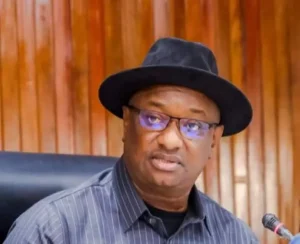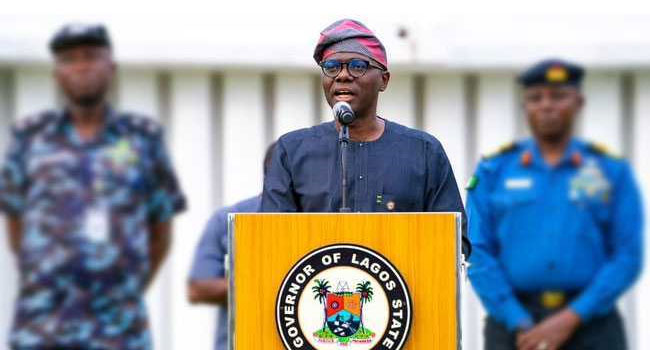The need for an inclusive sustainable development especially in the area of health has been emphasised by women living with disabilities in Nigeria. ENE OSANG writes
President of the Deaf Women Association of Nigeria (DWAN) Abuja chapter Mrs. Hellen Udoye Beyioku-Alase, emphasized a holistic approach to achieving development for all.
According to Beyioku-Alase, the Deaf women receives very little or no attention in Nigeria for their socio-economic, education, health andpolitical growth.
To this end the association appealed to the current administration led by President Buhari Muhammadu, NGOs, international communities andorganization to carry them along when it comes to drafting and implementing of policies/ project, economic and health empowerment, to fulfill the UN SDGs Slogan ‘’ no one should be left behind”.
“Ipas Nigeria, a non- governmental organization in collaboration with the Australian Governmentin Nigeria have successfully established sign-language interpreters in selected government hospitals here in FCT where Deaf women can now access hospitals without barriers.
“We want to add here that there should be Free health care insurance scheme for our women who are finding it difficult to pay the exorbitant expense of medical fees as citizens and which lead them to always patronize herb which are harmful to their body.’’
“We also want permanent sign-language interpreters in hospitals from the Federal government hospital and other private hospitals that might wish to partner with us.
She further called on Government at all levels to ensure equitable measures are put in place to include women with Disabilities and consider them in all plans to achieve the sustainable Development Goals.
While calling for speedy passage of Disability Rights bill to be signed into law to ease their pains.
‘’We want 20% waiver slots of Job placement and empowerment for women with Disabilities ascitizens from the Federal government Ministries, agencies and NGOs
“Over five million women are living with Deafness in Nigeria so effort to be makes to priories their need in the federal Government development, she said.
Jemila Hamza, while delivering a lecture said attaining sustainable development for PWD’s is possible if only everyone is able to contribute to the development of their communities.
According to her, for women with disabilities to be equal participants in shaping a sustainable future for their communities, the society needs to think and act towards it.
She said there is a need to value the contribution women with disabilities make in building a humane society and that every contribution counts.
She stressed the need to tap into the diversity within the disability sector by harnessing the potential and contribution of every woman with disability, regardless of her age, impairment, socio-economic status or geographical location.
She also harped the need to provide women with disabilities with space to represent themselves, to take their own decisions, and to have their individual and collective voices heard.
“The need to think before we act so that we do not erect physical, attitudinal or communication barriers which marginalizes, excludes and discriminates in the name of development is neither sustainable nor inclusive.
“The need to value the specific skills-sets women with disabilities developed over years of having to negotiate and problem-solve so much of their living space the need to recognize and acknowledge our own fears about acquiring disability and how these fears translate into marginalization, exclusion and discrimination.
She also stressed the need to provide an accessible, barrier-free physical and social environment, as well as access to information and communication, respect and acceptance of women with disabilities as part of human diversity and humanity.
“Equitable rights for women with disabilities on an equal footing with others and taking sustainable measures to ensure that women with disabilities have the opportunity to exercise their rights is important,’’ she said.
To achieve these she maintained that Women with disabilities in Nigeria need to lead the change they want to see, which is; getting policy makers and communities to move from charity to a rights – based approach on disability.
‘’This requires a lot or re-educating the public, awareness generation, networking and working together across sectors.
She added that another strategy is to work with the legislature by way of advocating for the passage of the disability bill.
“Women with disabilities must collaborate with other groups of the disability community to strengthen itself and its voice, and plan with government and non-government players in the journey towards the passage of the bill.
On leadership, she lamented that with the number of Women in leadership all over the world, women with disabilities are still ranked at the bottom of every scale that measures progress.
“They are the least likely people to be employed, the most likely to live in poverty and the most likely to die young due to inaccessible health care.
“Abuse against women and girls with disabilities takes place within families, institutions and communities; it tends to be more chronic and takes disturbing forms such as the withholding of essential care and medication.
“Women with disabilities must rise up and lead the change they want to see.Women with disabilities must bend themselves in positions of leadership whether from the disability community or as an ally; they must be where decisions are being made to reinforce the learning where it exist and to force it where it does not exist,” she urged.
Meanwhile the Country Director of the Christian Blind Mission (CBM ) Dr. Toyin Aderemi, quoted WHO report which says “persons with disabilities have ordinary needs for health and well-being, for economic and social security to learn and to develop skills and to live in their community. These needs can and should be met in mainstream programmes and service inclusions not only fulfil Human Rights, it is also more effective.”



